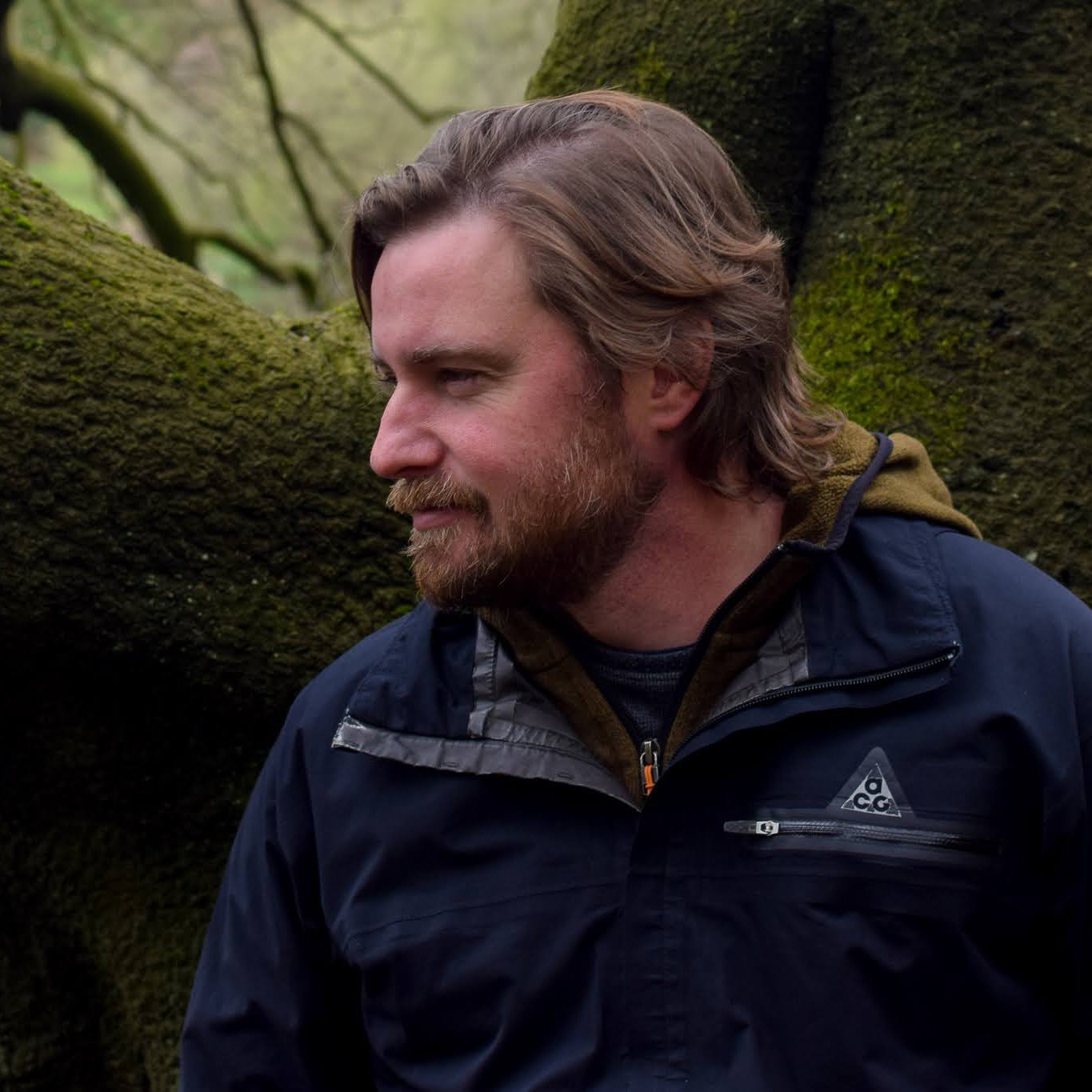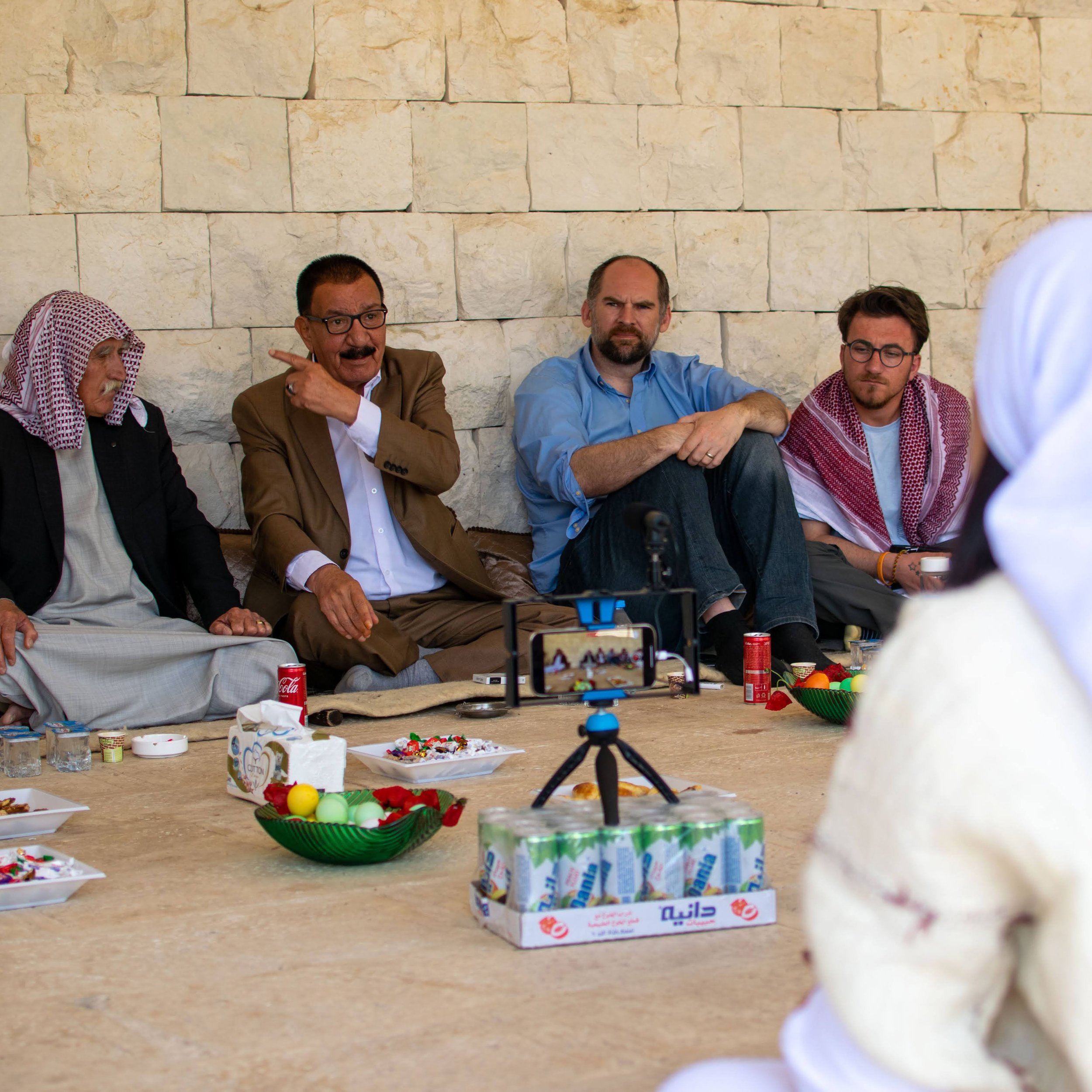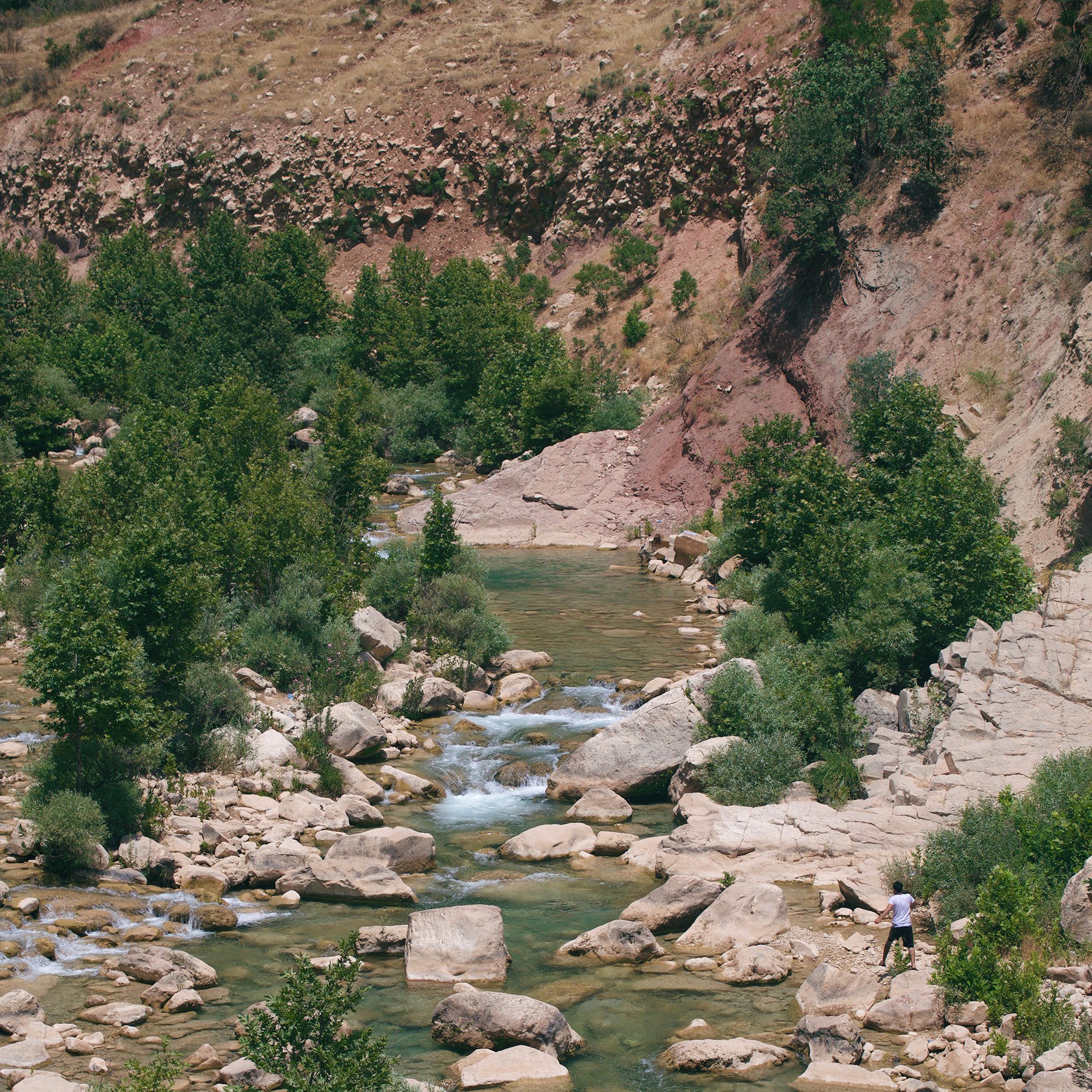Stories from the Kurdistan Region
NOVEMBER 19, 2024
The Reporter’s Notebook is our monthly interview series with Dial contributors. To receive these conversations directly in your inbox, sign up for our newsletter.
✺
A conversation with reporter Winthrop Rodgers, whose article about efforts to preserve Yazidi oral storytelling was published in our Language issue.
In 2014, the Yazidi religious minority suffered a genocide in northern Iraq, at the hands of the Islamic State. As well as killing and displacing hundreds of thousands, the genocide endangered the community’s oral storytelling tradition, already at risk from societal and technological change. Some years later two Yazidi poets founded the TewTew Archive, a project to record and preserve Yazidi storytelling and song. Dial intern Tessa Augsberger spoke to Winthrop Rodgers about how he came across the TewTew Archive, reporting in Iraq’s Kurdistan Region and the politics of language.
THE DIAL: How did you first hear about the Yazidi oral storytelling tradition and what made you want to write about it?
WINTHROP RODGERS: I moved to the Kurdistan Region in March 2018 and began working for a local television channel called NRT [Nalia Radio and Television], as their senior English editor — basically running their English website. I worked there until 2021, and we had a lot of coverage of Yazidi issues, mainly relating to the genocide that was perpetrated against them by the Islamic State in 2014. They were trying to find missing people. They were exhuming mass graves. While I was living in Sulaymaniyah, I got to know a few of the people who are featured in the article. Zêdan [Xelef, co-founder of the TewTew Archive] and I became friends and we’d go out to dinner and talk about what was happening in the Yazidi community. That’s how I became familiar with the TewTew Archive. In spring 2022, they had this oral storytelling event at Lalish and Zêdan asked if it was something I’d like to cover. I did some interviews at the event and took a bunch of photos, and I actually pitched a story about it to a website that I worked for but they weren’t interested and I sort of filed it away. When The Dial’s Language issue came up, I knew I had a great story for it. If I had written the piece I originally pitched, for this other place, it would just have been a news report, with maybe a little color. The Dial allowed me to go much deeper.
THE DIAL: Can you tell me more about the reporting process for this story?
WR: I’m based elsewhere now, but I spent nearly six years in the Kurdistan Region. I’ve been to Lalish several times, including for the event that happened in 2022, so I was able to report this story from outside because I already had the relationships and the knowledge to do it. I spoke to Zêdan, who’s living in Arizona, for an hour and a half on the phone. I did the same with Emad [Bashar, the other co-founder of the TewTew Archive], and then to get a more academic perspective, I talked to Christine Robins, who’s a former professor of Kurdish Studies at the University of Exeter in the U.K.
THE DIAL: How do young Yazidis feel about cultural preservation? Are there any significant generational differences within the Yazidi community in their attitudes toward preserving their oral histories?
WR: From what Emad and Zêdan tell me, it’s important to all Yazidis. They’re dealing with the aftermath of a genocide — a deliberate attempt to wipe a people off the earth, to destroy them not just physically, but to destroy their culture and their heritage as well. The oral tradition is something that is really important to preserve, and young people recognize this. At the same time — and this is something that didn’t really make it into the story — a lot of younger Yazidis will really appreciate the TewTew Archive when it launches, but they’re focused on activism, on trying to find justice for what happened during the genocide. That’s an immediate concern, right? Whereas cultural preservation is something of a longer-term project, one that needs people like these poets, people who are intimately involved in and focused on culture.
THE DIAL: At the end of the article, you quote Zêdan as saying, “It’s almost impossible that [Yazidi cultural heritage] will survive as a body of oral tradition.” Having spent a lot of time exploring the Yazidi oral tradition for this piece, how optimistic are you about Zêdan and Emad’s project?
WR: I’m optimistic. The tradition will still be there. I think what Zêdan is trying to say is that it’s not going to be like it was. The Yazidis are dealing with the aftermath of a genocide, and huge social and technological changes. People aren’t engaging in the oral tradition in the same way they used to, whether that’s because they’ve been displaced, or because they’re living with a whole different political economy — they’ve gone from being part of a rural, agricultural and animal husbandry-based economy to a modern economy with all kinds of new entertainment. Society changes and moves on. The archive does critical work to preserve Yazidi heritage for future generations. The people who listen to these stories online and haven’t heard them before, they can go on and share them in their own lives. And that’s crucial to ensuring that this tradition is still alive, even if it won’t be what it once was.
THE DIAL: When you write about this region, you have to choose which names and terms to use — whether to say northern Iraq or the Kurdistan Region, for example — and these choices are politically loaded and sensitive. Could you talk about how you make these decisions?
WR: I always refer to the Kurdistan Region, which specifically denotes the area that’s governed by the Kurdistan Regional Government. I do that because it’s legally precise, but also because it recognizes the fact that this area has a measure of autonomy. Big media organizations often refer to this area as northern Iraq which, as you say, is a politically loaded term. Kurds and others have been trying to achieve autonomy and even independence for decades, and referring to the region as northern Iraq ignores that struggle, and it ignores the legal reality.
In my article specifically, I was also writing about Shingal, which is outside of the Kurdistan Region. It’s now part of the area of Iraq that’s controlled by the federal government, by Baghdad, so referring to that as northern Iraq is accurate. Also, many Yazidis don’t understand themselves as Kurds. So it’s tricky, but engaging with these complexities is worth doing as a journalist, not just because it’s respectful, but also because it helps you to understand the issues in a more profound way.
THE DIAL: As a reporter, you focus on Iraq and the Kurdistan Region. How did your interest in this region come about?
WR: I grew up outside Washington, D.C. and come from a diplomatic family, so international affairs have always been a big part of my life. After I graduated, I worked at an international development NGO in Washington, D.C., for a while. Some of the programs I worked on involved contracts with Iraq. I got to know a lot of Kurds in northern Virginia, where there’s a big Kurdish diaspora, and one of them worked at NRT and they needed somebody to run their English desk. They asked me if I was interested and I said, “Yeah, sure.” I went over thinking that I would be there for a year, six months, something like that, and it just kind of kept rolling. I didn’t go to journalism school. I have a degree in politics and another in international relations, but I wasn’t trained as a journalist, so I had to learn all of that on the fly, learn it from other experienced, good journalists. But journalism felt like a really, really good fit. I’ve always been interested in — Kurdistan is not small, I should say that — relatively smaller places that have a history of conflict and contentious politics. My master’s is from Queen’s University Belfast. I studied the conflict in Northern Ireland for a long time, and so those sorts of dynamics are very interesting to me, and I think that’s part of what kept me involved in Kurdistan and in Iraq for so long. Once you get good at a beat and start to know the people who are there and all that, it gets a momentum of its own. And there’s no shortage of good stories there, either.
WINTHROP RODGERS is a journalist and researcher writing on Iraq and Kurdistan. He focuses on politics, human rights, and political economy. His past work has appeared in places like Foreign Policy, New Lines Magazine, and Inkstick.
TESSA AUGSBERGER is a German-American writer from Los Angeles, California. She attends Dartmouth College, where she is a Hanlon Scholar and serves as president of Dartmouth’s undergraduate history honor society. She enjoys writing satirically about style and culture and writes a twice-weekly newsletter called Faux Pas on Substack.



